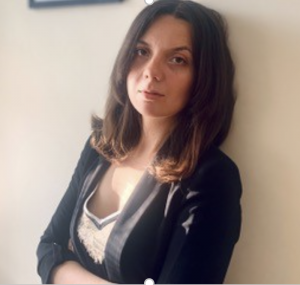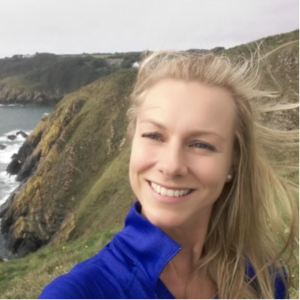Latest news
New book! Peripheral Nerve Tissue Engineering and Regeneration
The complete first edition of this living reference work is now available online and in print, providing a comprehensive overview of key concepts and…
Read more Close
Close


Describe your job and what this entails day to day?
I am a final year PhD researcher at the University College London Centre for Nerve Engineering, focusing on mathematical modelling led design of artificial constructs for use in nerve repair. As this project includes both experimental work and mathematical modelling, I am mostly based in a laboratory. This means that I spend my time designing and conducting experiments and analysing their results. A PhD is also a balancing act as it involves a lot of admin work, training, conferences, networking, publishing and even some teaching.
The biggest misconception around PhD life is that it is completely unlike any other day job. Certainly, there is more flexibility and there are a lot of late hours in the lab and periods that have a bigger workload, however I have found that, with organisation, one can manage to keep working hours withing the 9 to 5 weekdays. I think the most fascinating aspect of it is the quick pace of progress and the day-to-day variation. There is no such thing as a ‘typical PhD week’. Often, the plans I make on Monday will have changed by Wednesday afternoon.
What made you choose this type of work?
I was always fascinated by the complexity of the human nervous system. I chose this PhD as it is a wonderful project that I find personally and intellectually fulfilling. Especially, since it allows me to work at the interface of engineering and life sciences. I love problem-solving and I always wanted to contribute to society.
Completing a PhD can be very demanding. You need to accept any frustrating and disappointing times as an inevitable part of the process. However, it is also a very rewarding and exciting experience. Every day is a new challenge and an opportunity to learn new things. Moreover, you also get to meet many brilliant researchers from around the world and join communities that motivate and support each other. I truly can’t imagine any other line of work that could bring me so much joy and this sense of making a positive difference.
Where do you see yourself 10 years from now?
I am currently contemplating my career options. My priority is to find a role where I can develop and tackle new challenges and have a positive impact. I would also love to be able to work on multiple projects simultaneously and be the person others come to for ideas and strategy. I’ve been fortunate enough to have had amazing mentors throughout my studies, so I’d like to be able to offer similar support and guidance, potentially through a leadership role.
What do you enjoy doing outside of your work?
Hiking, running, cooking. A good movie, book or music concert.

Describe your job and what this entails day to day?
I am a physiotherapist and researcher working within the RNOH. I split my time between treating adults and children who have suffered nerve injuries. Since the onset of COVID my working life has transitioned to seeing patients via a virtual (video) format using lots of household props to demonstrate the exercises that patients need to do to progress.
From my research perspective I am investigating the patient reported outcomes of nerve surgery and injury. I also do a lot of teaching and conference presentations to help to educate therapists and allied health professionals with regards to how to treat patients with nerve injuries.
What made you choose this type of work?
I wanted to be a physiotherapist from the age of 11 where I saw a TV programme which followed a young boy who had suffered severe electrical burns from his being treated by the ambulance team right the way through his many months of rehabilitation with the physios learning to walk again. I qualified as a physio almost 20 years ago and over this time have always been drawn towards the long term rehabilitation of patients whereby you get to know them and their families and get to focus treatment to improving their quality of life.
Where do you see yourself 10 years from now?
I hope in 10 years time to still be working with nerve injured patients but perhaps to have also completed a PhD that focuses on an element of patient assessments to assist with the long term management of the condition
What do you enjoy doing outside of your work?
I am an outdoors person and enjoy running, cycling, open water swimming and hiking in the mountains and along the coast path.
Last modified on